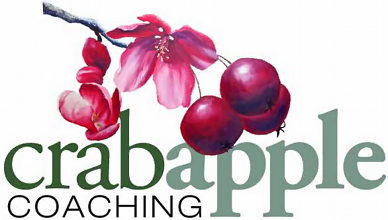 Helen, Heading Out (10)
Helen, Heading Out (10)
A series of articles about recreating identity after an all-consuming career
By Helen
University Professor of English and Women’s Studies
Retired August 2012 at age 63
It is only past the meridian of fifty that one can believe that the universal sentence of death applies to oneself. (May Sarton)
Quietly they go
In the first two months of 2015, we learned of the deaths of five people we knew: my aunt Dorothy; a hairdresser who mothered me when I went for a haircut; a horn player who’d attended Monday improvisation sessions at our house; our daughter’s father-in-law; and a friend, Narcisse, from out west. Stroke, lung cancer, heart attack, colon cancer, car accident. The last death was the hardest, of a funny and committed First Nations leader, killed senselessly in mid-life, with four others. All the promise of his work cut short.
In mid-summer I heard from another friend out west, with whom I’d shared fertility problems, pregnancy, and early childrearing, our children only days apart in birthdates. On my last visit to Lethbridge the previous fall, she and I had gone for a long catch-up walk through the coulees. Now Inga had a growth on her pancreas. Three months later she too was dead. A year younger than me. Leaving an Inga-sized hole in my universe.
Quietly they go, the intelligent, the witty, the brave.
I know. But I do not approve. And I am not resigned.
(Edna St. Vincent Millay, “Dirge without Music”)
Of no significance
In March of 2015 I had ten days of not knowing, myself, called back after routine breast mammography, for a follow-up ultrasound and mammogram (with a special muffin-tin shaped instrument of torture). The outcome? “An oval benign cyst, of no significance.” Years earlier, an enlarged thyroid had meant months of referrals, inconclusive results, and repeated biopsies. My father’s palpable surprise and relief, when those results were blessedly negative, surprised me. I hadn’t anticipated that, at his age, he would have come to expect the worst.
More alarmingly, back in 2010, my partner was told of a thickening of his pancreas, by a stricken internist who said of the ultrasound, “I wasn’t expecting this.” The specialist clearly assumed cancer. A less devastating diagnosis of autoimmune pancreatitis took months to arrive. As Thomas confronted imminent death, he dove into the writing of his next fiction and non-fiction books, so clearly he was already living the life he would have chosen.
Winding down
Even without deaths and the approach of one’s own death, life changes past middle age. When we downsized houses eight years ago, I felt that we’d shifted abruptly from one stage of life to another, unheralded one. Suddenly we were shedding what for years we’d collected so painstakingly as a form of self-expression. Our oak sideboard, my pine table and icebox, our book collections, the little rocking chair I’d carried home on the subway. It seemed odd to realize that our days of hunting out antiques and creating a nest were probably over.
From the fetal-alcohol caregiver support group I help facilitate, I keep a list of amusing anecdotes entitled “It Might Be FASD If . . . ” Two of us use the list for illustration when we do education and advocacy work. Now I wonder whether the time has come to stop collecting these examples.
A friend says she wishes morning would last all day. I get that. Morning is a time of possibilities and energy. Like Frank in his Crabapple column, “Following Frank into Retirement,” I too run down as the day goes on. By evening, I find I have little drive for tasks and so sometimes have to give up weekday painting to catch up on household business.
Too late for that
After her diagnosis, my friend Inga reflected on things she was grateful to have done, including travel to Nepal with her kids. She had hoped someday to visit Turkey. “Too late for that now,” she said.
For the first time, an awareness of running out of time has an actual impact on my decisions. A year ago, we looked at a little house for sale down the road from us, a possible home for our daughter. Over the next thirty years, the land would appreciate considerably. But we were uncomfortably aware that such a time frame now excluded us. An unpleasant, new sensation.
My partner has taken up horn playing. He understands the expectation that a musician earns the right to a fine instrument, through skill gained over years of practice. Thomas doesn’t feel he has the time for that. (Or does he now just have a handy argument for going after that copper flugelhorn?)
Our neighbour, who lives alone, recently adopted a puppy and is enjoying, as he says, “having another heartbeat in the house.” Leigh is about 65 and, in making this decision, is presumably assuming he’ll live the fifteen or so years needed to care for this dog. At some point, though, one’s ending begins to encroach. (Because retirement also increases the opportunity to travel, we’ve decided not to seek replacements for our dead cats and to rely instead on home visits from another neighbour’s cat.)
Narrowing of life’s shores
Our house shows physical signs of our retirement or at least of our stage in life: the blood pressure monitor, the long shoe horn, the heating pad and anti-inflammatories, the tall stack of expired passports (cautionary note: if you have lived outside Canada for more than 6 months, you may need this documentation for CPP/OAS applications). Because we have an acupuncturist living across the road, our living room sometimes even sports a portable massage table.
Like the house, our bodies are a testament to aging. The unfamiliar face in the mirror, most unsettlingly. In my case too, shoulder bones losing their padding, disappearing armpit hair, bulges above the back of a sundress. Recently pain in one knee threatened to end over thirty years of running, until I turned out to be among the lucky 50% for whom glucosamine chondroitin works. But that provides only a postponement. My partner faces regular bouts of pain that make cheerfulness more difficult.
These days I’ve started trying to restrain my tendency to talk aloud to myself, aware that what is quirky now could be read as evidence of dementia later in life. I also realize that lively scepticism in youth could come across as curmudgeonly crankiness in old age. Better to remind myself that what others think of me is none of my business. But I hadn’t foreseen that perception and self-presentation could be age-dependent.
Heading out
During the last week, two years after my father’s death, I’ve been clearing out his house, now that his widow, his second wife, has moved out. The job has proved more disturbing than I’d anticipated. As a friend wrote in response, about her own parents’ deaths, “How could it possibly be that they would never need those intimate things again, their glasses, their Bibles….?” The small residue of a life was also an uncomfortable foreshadowing of what my own life will come down to. The hearing aid battery under a side table, the plastic keyring fob from Cuba, the high-school yearbook—what few remnants remain behind, of lives and dreams, my parents’ and my own. Apart from memories, of course.
Saying good-bye to your self
One aspect of death I have trouble with is the loss of individual skills, the experiential knowledge that vanishes with each person. My mother avoided a calculator and practised mental math in order not to lose it. Someone else could speak five languages or coax magic out of a violin. We all learn little tricks, such as knowing what happens when water hits the concavity of a spoon, and so turning it upside down when washing it. I like to split romaine stalks in half for nicer greens. Things we don’t even think to pass on.
Some of this does get incorporated instinctively into subsequent generations and provides a kind of continuity, even immortality. Two days ago my daughter teased me when I asked whether she had checked her hotel room carefully before vacating it, saying she’d had years of watching us. When I travelled to Ireland, I discovered the origins of some family practices, such as giving hot peppered milk for nausea or arranging sleeping children head to toe in a bed. But so much of what makes the individual gets lost.
I have a nightly visitation with death most evenings, a little frisson of horror at the realization that someday I won’t exist anymore. Then I sleep. Despite this, much of the time I consider myself one of the exempt. There are the dying (including the very old), and there are the exempt. Part of what was so shocking about the sudden death of a colleague at another university a year and a half ago was that I considered her, like me, one of the exempt. And if Renate, then…
Negotiating the end of the bend
Most of the subtitles in this column have a decidedly discouraging tone, yet the newsletter’s goal is to offer helpful and presumably upbeat understandings of this period of life, in retirement. Here I’ve explored my experience, at age 66, of mortality’s growing impact on my consciousness. Next month I’ll put my attention to the matter of how to live with that reality or at least how I have tried to negotiate mortality creep and the apparent constricting of life’s banks.

Thank you for your refreshingly honest article.My husband & I have just finished undecorating our house from Christmas. We’ve reduced the amount of our Christmas ‘stuff’ significantly. I know that most of this ‘stuff’ is only important to me. Yes, I have loved it all but find that I no longer have the interest or energy & the same issues you’ve discussed in your article apply to my thinking. Thanks for validating my experience tòo!
Thank you for the feedback, Donna. Complicated feelings, for sure.
Helen, this is a very thought provoking column. Recently, suffering from undiagnosed abdominal pain (subsequently diagnosed as gallstones), I felt the breeze as I imagined death’s door opening for me. As we age it’s challenging to live with the tension of approaching/imminent death and ongoing life. What decisions should we make? Should we live as if we’re dying? Or live as if we are exempt?
It keeps getting harder just now, I’m finding, Amy. Little whispers of warnings or reminders, for self, for loved ones. Yikes.
Thank you for this article. I have recently retired and am facing the task of clearing out, fixing up and selling my parent’s house. It will be a lot of work and one job that I will feel very happy about myself and my brother completing. My husband and I also want to renovate our own home but that will come with time and available resources. “With grace and ease, I accomplish one thing at a time” is my mantra.
I don’t fear death. I understand that my life has been both a blessing and a gift.
I am more present and intentionally focus much more on the now – not lingering on the past nor the ‘what’s ifs’ and looking at future challenges as opportunities for growth and learning. Sounds perhaps somewhat naive, however, I’m in a good place, and it’s much more fun appreciating the wonders in my life, rather than dwelling on the less-than-grand moments.
I like the expression from Star Wars “Live long and prosper.” I intend to do just that!